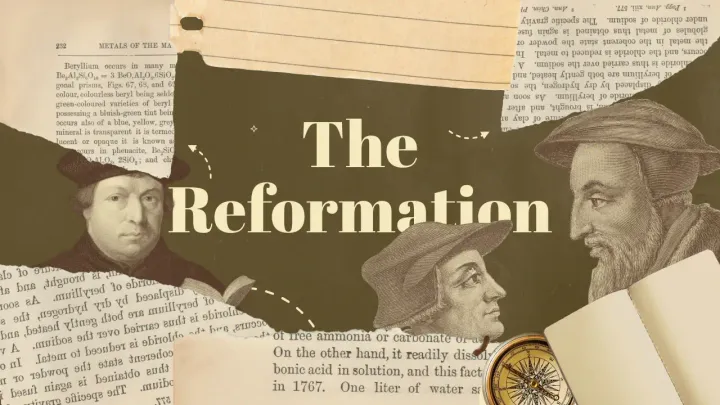The Five Solas: Pillars of the Protestant Reformation
Journey back to the heart of the Reformation, where the "Five Solas" emerged. Born in the 16th century, these principles continue to shape faith for millions today. Uncover Sola Scriptura, Sola Fide, Sola Gratia, Solus Christus, and Soli Deo Gloria—revealing their timeless significance for believers

What are the ‘Five Solas’?
The Protestant Reformation took place in the 16th century and was a transformative period in Christian history. The Protestant Reformation sparked a renewal of Biblical truths and a call for reform within the Church. Central to this movement were the Five Solas. The Five Solas were five key theological principles that encapsulated the core beliefs of the reformers. The Five Solas continue to influence Protestant belief and practice to this day. These five solas are Sola Scriptura, Sola Fide, Sola Gratia, Solus Christus, and Soli Deo Gloria.
1. Sola Scriptura (Scripture Alone)
“Sola Scriptura” emphasizes the supreme authority of the Bible in matters of both faith and doctrine. Reformers like Martin Luther and John Calvin argued that the teachings of the Church should be based solely on the Scriptures, rather than on tradition or the teachings of the clergy. They believed that the Bible, as the inspired Word of God, contained all the necessary guidance for salvation and Christian living. This principle sparked a renewed focus on biblical study and interpretation, leading to the translation of the Bible into local languages and the widespread distribution of Scripture.
2. Sola Fide (Faith Alone)
“Sola Fide” highlights that salvation is attained through faith in Jesus Christ alone, rather than through good works or human effort. The reformers rejected the Catholic Church’s emphasis on indulgences and the idea that one could earn salvation through deeds. Instead, they proclaimed that justification, or being declared righteous before God, comes as a result of trusting in Christ’s atoning sacrifice. This concept of salvation by faith alone became a hallmark of Protestant theology and is a key distinction between Protestantism and Catholic traditions.
3. Sola Gratia (Grace Alone)
“Sola Gratia” underscores that salvation is entirely a result of God’s grace and not based on human merit. The reformers rejected any notion that individuals could earn God’s favor through their actions. Instead, they taught that salvation is a gift freely given by God to undeserving sinners. This principle emphasizes the profound love and mercy of God and humbles humanity by acknowledging its dependence on God’s grace for salvation.
4. Solus Christus (Christ Alone)
“Solus Christus” asserts that Christ is the only mediator between God and humanity, and salvation is found exclusively in Him. The reformers challenged the Catholic Church’s veneration of saints and the practice of seeking intercession through them. They believed that Christ’s sacrificial death on the cross was sufficient to reconcile humanity with God. This principle emphasizes the uniqueness and sufficiency of Christ’s work in the redemption of humanity
5. Soli Deo Gloria (Glory to God Alone)
“Soli Deo Gloria” declares that all glory and praise belong to God alone. The reformers sought to redirect the focus of worship away from the clergy, saints, and religious rituals towards the worship of the Triune God. This principle encourages believers to recognize God as the source of all things and to live their lives to glorify Him in all aspects. It also challenges the human tendency to seek personal recognition and acclaim, instead highlighting the sovereignty and majesty of God.
Conclusion
In conclusion, the Five Solas are foundational principles that emerged from the Protestant Reformation, shaping the theological landscape and influencing countless generations of believers. These solas emphasize the authority of Scripture, the centrality of faith in Christ, the primacy of God’s grace, the exclusivity of Christ’s role in salvation, and the ultimate purpose of bringing glory to God. While the context of the Reformation is historical, these principles continue to resonate with believers today as they seek to deepen their understanding of God’s Word, grow in their faith, and live lives that honor and glorify our Creator.


